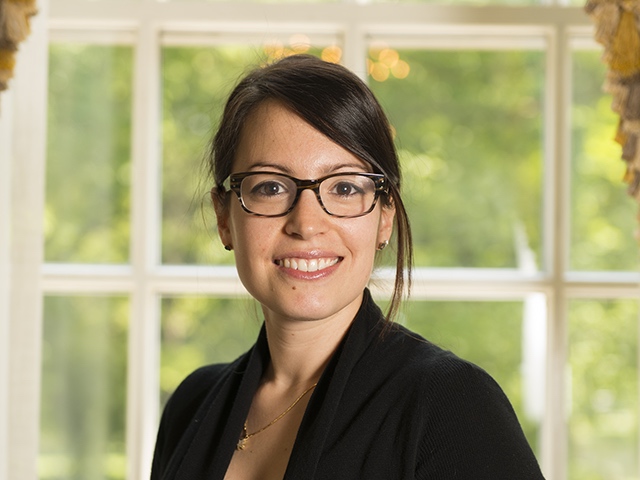Dr. Galit Alter on Immunity, Vaccines, and Hope
On September 17, Dr. Galit Alter presented a Hall—a Part II, of sorts, on the COVID-19 pandemic—focused, this time, on how we might emerge from our current situation. Dr. Alter’s work focuses on the development of biological tools that help individuals develop immunity against infectious diseases. She is a professor of medicine at Harvard Medical School and a group leader at the Ragon Institute of MGH, MIT, and Harvard.
We have heard much recently in the news about the global rush to develop an effective and safe vaccine against COVID-19, in order to save lives, resuscitate our economy, and allow us to return to the routines we enjoyed pre-pandemic. Dr. Alter spoke to students and faculty on Thursday not only about the science of antibodies and immunity, and the various pathways to developing effective vaccines, but also about the history of vaccinology.
“The idea of vaccination is really simple,” she began. “It is taking a substance—which can come in lots of different shapes, sizes, qualities—and putting it into the human body, asking the body to make antibodies, or develop an immune response. We hope that through this process, we educate the immune system to essentially fight a pathogen, should we ever come in contact with that pathogen in the future. Vaccines save millions of lives every year… They are literally one of the most effective public health tools that we have in the medical tool kit.”
“And vaccines are not only for you as an individual; [getting vaccinated is] something we do for our community. We do this for our friends, our families, our neighbors, our country, and our world. We take the responsibility to prevent infections from hurting those who are most vulnerable.”
Dr. Alter walked students through the history of vaccination—from Edward Jenner’s 1760’s discovery that injecting someone with cowpox could prevent smallpox; to Louis Pasteur, a chemist whose discovery that sterilizing pathogens and injecting those killed pathogens into animals could protect them from infection; to Robert Koch who created the process of pathogen identification, giving rise to the safety and development checkpoints that we use in creating vaccines today. But, as Dr. Galit shared, there is evidence as far back as Ancient China, Greece and Egypt—examples in drawings, lithography, and hieroglyphics—of individuals performing the art of vaccination back then.
“Since the 18th century, vaccine development has exploded,” she continued. “We have hundreds of different approaches, technologies, and platforms that allow us to drive immune responses. Today we can deliver components of pathogens in lots of different ways. We can attenuate the way Pasteur did. We can deliver it through DNA or RNA, which essentially allows our body to make those components through our own cells. We can also use other kinds of chemical processes to make these components of a pathogen in a way that our immune system can see them more effectively.”
Dr. Alter discussed the typical timeline of vaccine development and the various phases that must take place—preclinical trials, several rounds of testing, FDA approval—in order to develop a safe and effective vaccine, ready for use by the general public. This process typically takes 16 years. The global response and commitment to developing a COVID-19 vaccine has condensed that timeline to less than two.
“The reason we can do this—and I want to stress this really important point—is that none of the components of the process are gone. All the safety checks, quality checks, efficacy checks are still part of this process. What we’ve done is created overlapping ways of running this entire timeline so that we can get to the vaccine faster and get it out to people as quickly as possible.
“As much as the vaccine development timeline has been politicized, the important thing to remember is that there are incredibly responsible people at the heads of these companies and agencies who are not willing to compromise on safety. They’re not willing to put anything into someone’s arm that could compromise the whole development of vaccines. As I mentioned, vaccines are one of our most effective public health intervention tools, and we cannot compromise public trust and process to basically make people happy. It’s got to be safe, and it’s got to be effective.”
Dr. Alter earned her bachelor’s degree and PhD at McGill University and completed postdoctoral training in the Partners AIDS Research Center at MGH. She is a two-time recipient of the prestigious MGH Research Scholars Award and was elected a member of the American Association of Microbiology in 2019.

